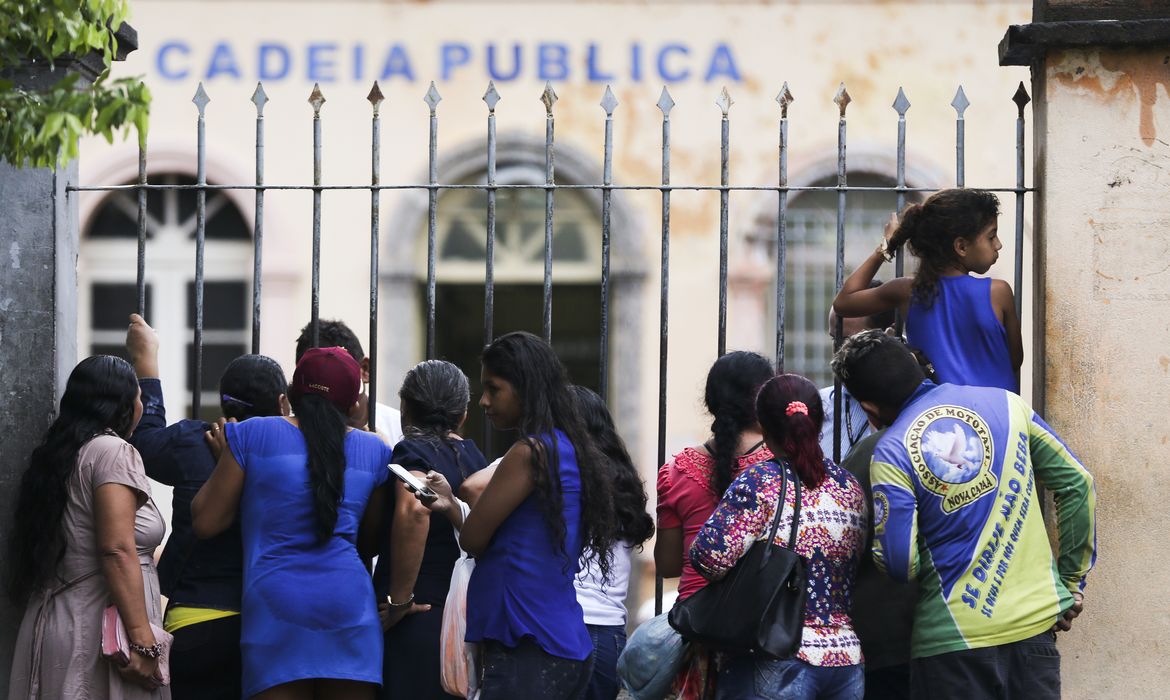Check out 8 aspects of the new IACHR resolution on relatives of incarcerated people
The document, produced by an OAS-affiliated entity, reinforces the protection of family ties, prohibits humiliating strip searches and acknowledges specific impacts on women, children, and people with disabilities
 Foto: Marcelo Camargo/Agência Brasil
Foto: Marcelo Camargo/Agência Brasil
The Inter-American Commission on Human Rights (IACHR) published Resolution no. 2/2025 in August, adopted in July, acknowledging the rights of relatives and people with ties of affection to people deprived of liberty. The document, prepared by this entity associated with the Organization of American States, highlights that mass incarceration and the abusive use of pre-trial detentions affect not only the detainee, but an entire community, particularly the children and companions of people deprived of liberty, in addition to disproportionally affecting the elderly and people with disabilities that visit the prison system.
This innovative resolution not only acknowledges that the deprivation of liberty has affected people surrounding detainees, but includes the principle of individualization of punishment: for each incarcerated individual, at least five others are directly affected. It also states that the punishment cannot extend, even if indirectly, to relatives and close associates.
The IACHR thus encourages States to adopt policies that strengthen family ties, prevent violations, and reduce the disproportionate effects of the prison system.
Read more
Eight core aspects of the resolution:
1 – Equality and the fight against stigmatization – States are to prevent discrimination against family members, acknowledging that they often suffer with a stigma comparable to or, in some cases, greater than that of the detainee themselves.
2 – Childhood and maternity – Children and adolescents must be treated with the utmost priority, with psychosocial support and a guarantee of family life.
3 – Family ties as a right – Frequent contact between people deprived of liberty and their relatives is essential to reduce emotional damage, favor the return to liberty and fight stigmas. The resolution further explains that this connection must be protected through the frequency, duration, and proper modalities of visits, opposing recent setbacks experienced in Brazil such as compulsory virtualization and the restriction of visits in specific contexts or the extinction of temporary prison releases, caused by Federal Law No. 14,843, of 2024.
4 – Detention close to home and accessibility – People deprived of liberty should serve their sentences in facilities near their homes, and States should assure proper displacement conditions, particularly for the elderly and people with disabilities. States must also offer a rationale for when they make transfers to places distant from the detainees’ families.
5 – Visits in dignified conditions – The resolution puts forward that States should take a no-tolerance stance against humiliating strip searches, demand non-invasive technologies and mandatorily establish appropriate spaces for family meetings, including for small children.
6 – Family participation and protection – Family members should be included in penitentiary policies and be acknowledged as human rights defenders. This acknowledgment is justified because relatives, particularly women, have taken on a key role in monitoring prison conditions and social control, even though this would primarily be under the purview of the State. Organizations like Amparar – Associação de Familiares e Amigos de Pessoas Presas e Internos/as da Fundação Casa (the Association of Relatives and Friends of People Deprived of Liberty and Incarcerated Youth of Fundação Casa, in a free translation) and the National Agenda for Disincarceration have already documented how women’s care has become the main support network in the face of state omission and they have reported several human rights violations with the support of relatives and incarcerated individuals inside and outside of prison walls.
7 – Information, transparency, and data production – States must clearly transmit to families information about the health status, procedural situation, transfers, or deaths of incarcerated individuals. Besides, the resolution introduces the novel obligation of producing specific data on relatives of detained individuals, so as to support public policies with their active participation from drafting to implementation.
8 – Care networks and specific focus – Family support must be recognized as a core element of common living in prisons and the return to liberty. Policies must take on intersectional and intercultural characteristics, in addition to considering the specific aspects of families affected by the effects of climate change and socio-environmental disasters.
Orientations for Brazil
In Brazil, the resolution shares elements with ongoing discussions at the Federal Supreme Court level, such as the recent delivery of state plans within the National Plan for the resolution of the Unconstitutional State of Affairs, referred to as “Pena Justa” (Fair Sentence, in a free translation). Though the framework of the National Plan contains some aspects related to relatives that should guide the preparation of state plans, in practice, the participation of relatives in the drafting of these documents in nearly all states was treated as a mere formality and their perspectives were barely included, or in some cases not at all. The IACHR resolution stresses that the effective participation of relatives should be a requirement for any prison policy to be legitimate and effective.
The resolution is expected to guide the drafting of public policies in Brazil and reinforce the need to eliminate long-standing violations against people deprived of liberty and their relatives. Among these violations, humiliating strip searches, the subject of a historic litigation at the Federal Supreme Court with intense activity by organizations such as Conectas, are a symbol of institutional violence and disregard towards human dignity. The document sends an important message: protecting family ties, appreciating the role of women as caregivers, and acknowledging relatives as political entities are necessary conditions for a justice that is effectively committed to human rights.






